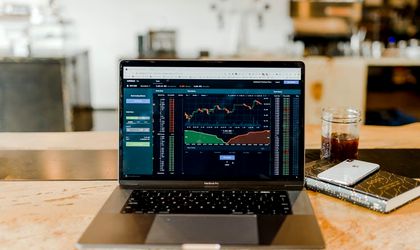
Having a good grasp of the forex spread is essential to becoming a successful forex trader. It measures the difference between selling and buying a currency. A large spread indicates a market that is volatile and lacking in liquidity, while a small one indicates a well-liquid market.
The forex spread is usually described as a series of pips or increments that are pip-sized. It is based upon the general supply and need for the particular pair. It can also affect external market factors, like geopolitical stability, which can have a significant impact on the spread. Spreads can vary between currency pairs. Some have spreads that exceed 20 pips while others are larger.
Spread is not important for many traders. Forex and non-forex traders will both benefit from an understanding of its effects. For example, traders can lose profits if the spread is too large. Additionally, large spreads can impact the liquidity of trading instruments, which can result in a decrease in its utility for long-term and short-term traders.

The spread can also be referred as the bid/ask spread (or bid-ask distinction), which is a combination of both. The bid-ask differential is the price at that a forex market maker would be willing to purchase or sell the base currencies. The spread for the base currency (the dollar) is generally lower than it for other currencies.
It is important to have a forex spread calculator in your toolbox. There are many available online. Typically, you'll need to input the number of units of currency you want to trade, the size of your trade, and the number of lots you wish to trade in order to come up with a spread estimate. Fixed spreads eliminate the guesswork that comes with trading forex.
The forex spread calculator is only one tool. Make sure you look at the chart in the broker's trading platform. Here are the major moves and shakes in the spread and which currency pairs should you be monitoring. You should also keep an eye on important news items that could have a major impact on spread.
You should also consider the time of day when you are trading. While the spread is smaller during the early morning hours in the European trading session, the spread is likely to be much higher in the Asian session. It is also more likely that the spread will be greater during the Asian session's nighttime hours. This is when the forex markets are at their most active. Make sure you understand the spread if traveling to a foreign country.

The forex spread is the difference between the price at which a currency pair will be offered and asked for. It is one of the most important variables involved in forex trading, and it is usually measured in pips. Using a good forex spread calculator can help you determine the exact number of pips that you'll need to make a trade.
FAQ
Are bonds tradeable
Yes they are. They can be traded on the same exchanges as shares. They have been for many, many years.
You cannot purchase a bond directly through an issuer. You will need to go through a broker to purchase them.
It is much easier to buy bonds because there are no intermediaries. You will need to find someone to purchase your bond if you wish to sell it.
There are different types of bonds available. Different bonds pay different interest rates.
Some pay interest every quarter, while some pay it annually. These differences make it easy for bonds to be compared.
Bonds are great for investing. For example, if you invest PS10,000 in a savings account, you would earn 0.75% interest per year. This amount would yield 12.5% annually if it were invested in a 10-year bond.
If you were to put all of these investments into a portfolio, then the total return over ten years would be higher using the bond investment.
What is the difference between the securities market and the stock market?
The entire market for securities refers to all companies that are listed on an exchange that allows trading shares. This includes stocks, options, futures, and other financial instruments. Stock markets are usually divided into two categories: primary and secondary. The NYSE (New York Stock Exchange), and NASDAQ (National Association of Securities Dealers Automated Quotations) are examples of large stock markets. Secondary stock market are smaller exchanges that allow private investors to trade. These include OTC Bulletin Board, Pink Sheets and Nasdaq SmallCap market.
Stock markets are important as they allow people to trade shares of businesses and buy or sell them. The price at which shares are traded determines their value. Public companies issue new shares. These shares are issued to investors who receive dividends. Dividends refer to payments made by corporations for shareholders.
Stock markets not only provide a marketplace for buyers and sellers but also act as a tool to promote corporate governance. Boards of directors are elected by shareholders to oversee management. The boards ensure that managers are following ethical business practices. The government can replace a board that fails to fulfill this role if it is not performing.
What is a "bond"?
A bond agreement is an agreement between two or more parties in which money is exchanged for goods and/or services. Also known as a contract, it is also called a bond agreement.
A bond is typically written on paper, signed by both parties. The bond document will include details such as the date, amount due and interest rate.
The bond can be used when there are risks, such if a company fails or someone violates a promise.
Bonds are often used together with other types of loans, such as mortgages. The borrower will have to repay the loan and pay any interest.
Bonds can also help raise money for major projects, such as the construction of roads and bridges or hospitals.
A bond becomes due upon maturity. That means the owner of the bond gets paid back the principal sum plus any interest.
Lenders can lose their money if they fail to pay back a bond.
Statistics
- The S&P 500 has grown about 10.5% per year since its establishment in the 1920s. (investopedia.com)
- "If all of your money's in one stock, you could potentially lose 50% of it overnight," Moore says. (nerdwallet.com)
- Even if you find talent for trading stocks, allocating more than 10% of your portfolio to an individual stock can expose your savings to too much volatility. (nerdwallet.com)
- Individuals with very limited financial experience are either terrified by horror stories of average investors losing 50% of their portfolio value or are beguiled by "hot tips" that bear the promise of huge rewards but seldom pay off. (investopedia.com)
External Links
How To
How to Invest Online in Stock Market
Investing in stocks is one way to make money in the stock market. There are many options for investing in stocks, such as mutual funds, exchange traded funds (ETFs), and hedge funds. The best investment strategy depends on your investment goals, risk tolerance, personal investment style, overall market knowledge, and financial goals.
To be successful in the stock markets, you have to first understand how it works. Understanding the market, its risks and potential rewards, is key. Once you understand your goals for your portfolio, you can look into which investment type would be best.
There are three main types of investments: equity and fixed income. Equity refers to ownership shares of companies. Fixed income can be defined as debt instruments such bonds and Treasury bills. Alternatives are commodities, real estate, private capital, and venture capital. Each category comes with its own pros, and you have to choose which one you like best.
Once you have determined the type and amount of investment you are looking for, there are two basic strategies you can choose from. One is called "buy and hold." You buy some amount of the security, and you don't sell any of it until you retire or die. Diversification is the second strategy. It involves purchasing securities from multiple classes. You could diversify by buying 10% each of Apple and Microsoft or General Motors. Buying several different kinds of investments gives you greater exposure to multiple sectors of the economy. You are able to shield yourself from losses in one sector by continuing to own an investment in another.
Risk management is another key aspect when selecting an investment. Risk management can help you control volatility in your portfolio. A low-risk fund could be a good option if you are willing to accept a 1% chance. You could, however, choose a higher risk fund if you are willing to take on a 5% chance.
The final step in becoming a successful investor is learning how to manage your money. You need a plan to manage your money in the future. You should have a plan that covers your long-term and short-term goals as well as your retirement planning. This plan should be adhered to! Do not let market fluctuations distract you. Your wealth will grow if you stick to your plan.